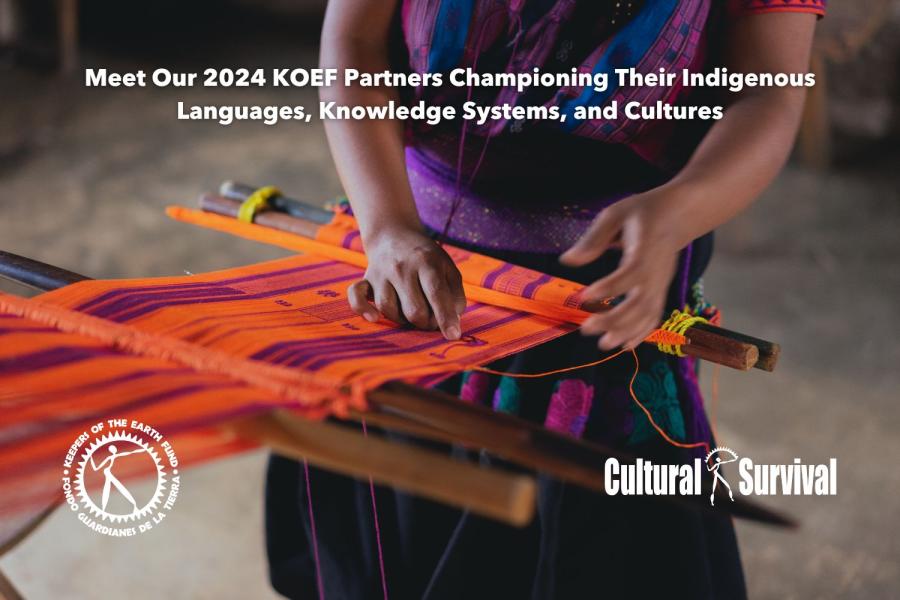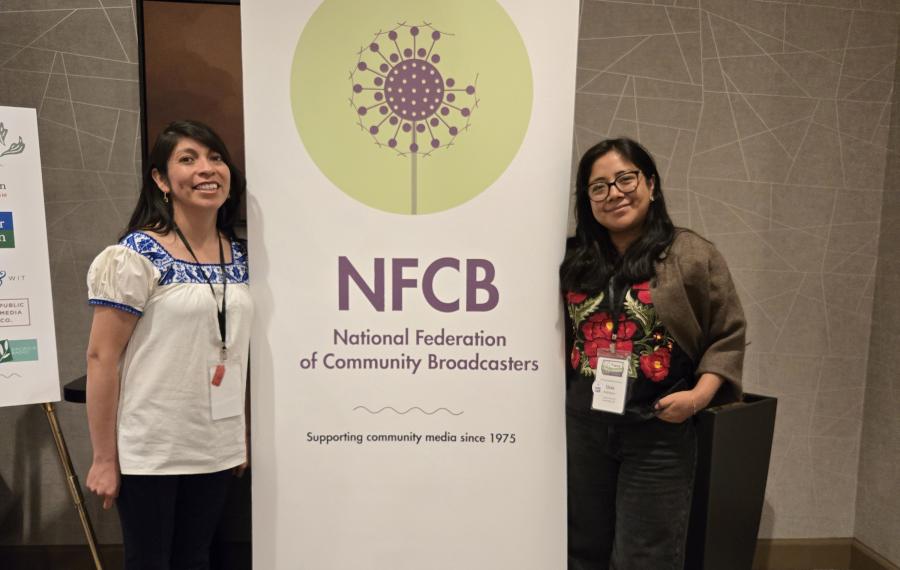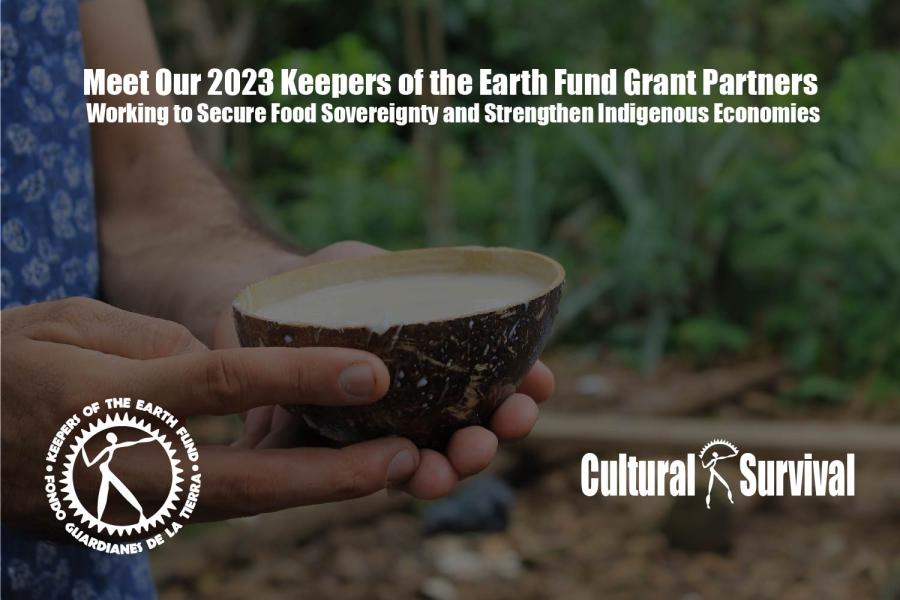"Was it worth it?" I am of two minds about the State of the Peoples Tour, since I am both Pokagon Band Potawatomi and a staff member of Cultural Survival. As the CS staff member responsible for organizing the Tour, I see it is being worthwhile because people did go away from the events more aware of gross violations of group rights around the world.
But was it worth it from an indigenous person's point of view? At times I wanted the whole thing to stop; I did not want to put the speakers through the painful memories, the hostile questions, or the exhausting schedule. Sometimes I felt angry at myself for making them leave their families or studies or work. Other times I felt frustrated when people did not seem to be listening to what the speakers were saying.
Some people were quite receptive to the whole idea of indigenous rights, asked thoughtful questions and wanted to help further. But others found the speakers more curious than important, more titillating than imperative. And others felt they had to argue against the whole idea of indigenous rights.
Perhaps the most upsetting response came from a confrontational caller to a radio talk show who wanted to know why we were promoting indigenous peoples' rights when "those people" are nothing but "barbarian." According to him, the modern world is about "evolution" and survival of the fittest. Indigenous people lost the fight, so they should not be complaining now. He was worried that indigenous peoples would take what is not rightfully theirs, according to evolution.
I was always surprised when non-indigenous people seemed threatened by our issues. Do they think that indigenous people are trying to pull a fast one on mainstream society? Are they afraid of being held responsible and forced to pay restitution for past misdeeds against indigenous peoples? Do they believe that indigenous people may be getting something for nothing?
The fact is, indigenous people are getting nothing for everything. The profits from timber sales mean more than entire populations of people. We are not trying to take anything; we are only trying to receive - to receive equality in the eyes of each other, of our governments, and of the world. We want to live as communities, to determine our own development, and to evolve at our own pace.
Control over the nature and pace of our own development threatens governments, powerful financial interests, and those who believe " the Indians want to take away the very houses we live in." Development is progress and progress is, after all, for the benefit of society as a whole. Isn't it?
No society can protect the good of the whole when that "goodness" creates non-citizens. To be a non-citizen means the government burns down your villages in order to clearcut the forests and throws you in prison for voicing your opinion. Choices which affect indigenous peoples should be made with their voices. And profits should never be chosen over lives. Penan life should not be destroyed because trees are wanted for picture frames, nor Karen life because trees are "needed" for chopsticks.
Promoting indigenous people's rights should not be a trendy cause thrown of the coffee table for good conversation. Indigenous lives are worth much more than that. It upset me that some of the hosts for our Tour wanted more popular speakers, or speakers from groups they already knew about. This upset me because the point of the Tour was the promotion of right of all indigenous peoples, not just those with the most well-known speaker.
EAch solution, if it is to be effective solution, must come from a finely turned listening. Indigenous communities know what is best for themselves, but they need outside help because they do not have sufficient resources on their own. The solutions for maintaining indigenous cultures must come from the peoples themselves; outsiders must ask and not tell indigenous people what is in their best interest.
Being an indigenous person is hard work. In order to advance your cause, you must constantly recount the heartwrenching story of atrocities against your people. It takes a toll on the mind and body to repeat again and again that your country's "government" has declared and all-out war to exterminate your people.
At one of the events, a student asked the speakers how they had suffered personally in their work. This is the type of question I abhor. They make the speakers relive what has happened as a tabloid story. But how often can we speak about the death of our family members and the destruction of our homeland?
In spite of this, indigenous people around the world have created and maintained great energy and intensity in their fights to survive. The speakers for the State of the People Tour included Louisa Benson of the Burmese Karens, Mutang Urud of the Kelabit of Sarawak, John Peters of the Wampanoags, Matthew Coon-Come of the Cress (of Quebec), Tom Goldtooth of the Dine', and John Vaara of the Tlinglit.
Each of these speakers continues on the long journey of protecting their people despite the trials of being a public figure. The least we can do is to applaud their valiant efforts. They would forgo the applause if they could get us to listen. There is no reason we cannot do both.
Article copyright Cultural Survival, Inc.



